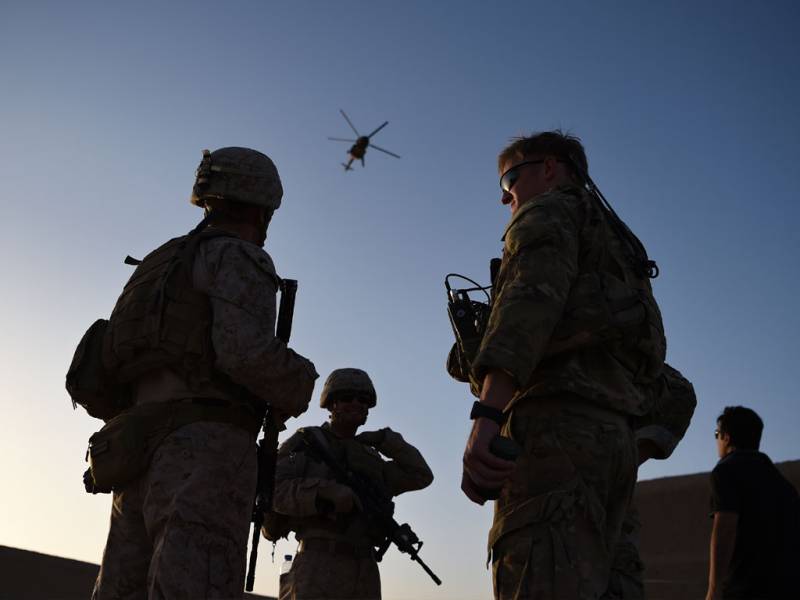Historic deal between US and Afghan Taliban faces a fatal blow
Shares

ISLAMABAD - The hopes for peace raised as a result of the US-Taliban withdrawal deal in Doha have been dealt an early and perhaps fatal blow.
While attacks against the Afghan security forces all over Afghanistan and a US air strike in response in recent days indicated the difficulties inherent in the situation on the ground, the slaughter of Shia Hazaras at a rally in Kabul to commemorate Abdul Ali Mazari yielded 29-32 dead and 58-61 wounded. This is the deadliest assault since the Doha deal. While the Taliban have denied responsibility, Islamic State (IS) has claimed it.
The glaring security lapse at a rally to commemorate a Hazara leader kidnapped and killed by the Taliban some years ago indicates the fraught conditions of ensuring a reduction of violence that is supposed to lubricate the withdrawal of foreign forces. The lapse is even more concerning because last year the same rally was subjected to a mortar barrage, killing at least 11 people. Reports say two gunmen fired on the rally with machine guns and lobbed grenades on the crowd from a nearby under-construction site.
Although the two attackers were eventually killed by security forces, the failure to secure the site of the rally must stand out as a serious security failure. President Ashraf Ghani condemned the attack as a "crime against humanity". Pakistan too condemned it while hoping the peace process would continue. Fortunately, Abdullah Abdullah was at the rally but escaped unharmed.
The withdrawal deal hinges, amongst other things, on the Taliban not only reducing their own attacks but controlling al Qaeda and IS otherwise the US military may be forced to remain. US Secretary of State Mike Pompeo tried to peddle a 'glass half-full' theory by arguing violence has come down overall, but this is unlikely to being any comfort to the Hazara victims of this atrocity. IS in particular is known to be targeting Shias on a sectarian basis and may not be amenable to Taliban control.
As if all this were not enough, the intra-Afghan talks scheduled for March 10, 2020 seem stalled over the Afghan government's refusal to go along with the prisoner swap agreed between the US and the Taliban in Doha.
US President Donald Trump is not known for pulling his punches.
In a tacit admission of Washington's defeat in the 'graveyard of empires', a defeat perceptive analysts had predicted as long ago as 2001, Mr Trump admitted in answer to a reporter that a total Taliban victory after the US and NATO troops withdraw could not be ruled out.
The basic flaw in the invasion and occupation of Afghanistan over the last 19 years was the notion that outside occupying forces could construct a viable state able to defend itself against the insurgents. To add to what looks increasingly like the Afghan government being thrown to the wolves, Washington failed to accord any weight or status to the Afghan government during the parleys, and seemingly expected decisions taken over its head (e.g. the prisoner swap) to be swallowed without demur.
The prisoner issue seemed the only card left in Ashraf Ghani's deck, and he has duly played it to remind not only the Taliban, but his supposed ally the US that it cannot simply be ridden roughshod over.
Although President Trump is right in arguing that the US cannot stay another 20 years on top of the past 19 years to hold the Afghan government's hand, realistically speaking the ability of President Ashraf Ghani's government to resist the looming Taliban thrust for exclusive power is open to serious question.
The US, after its fundamental mistake of invading and occupying Afghanistan in 2001 rather than seeking other means of combating al Qaeda and bringing the Taliban to heel, now seems set to 'cut and run' without a thought for what may follow.
The Afghan Taliban's past (and suspected continuing) ties with groups al Qaeda and IS are likely to compound the failure of the deal, but Pakistan must also be alert to the possibility of the Afghan Taliban favouring a revival of the Tehreek-i-Taliban Pakistan from its safe havens across the border on Afghan soil.
